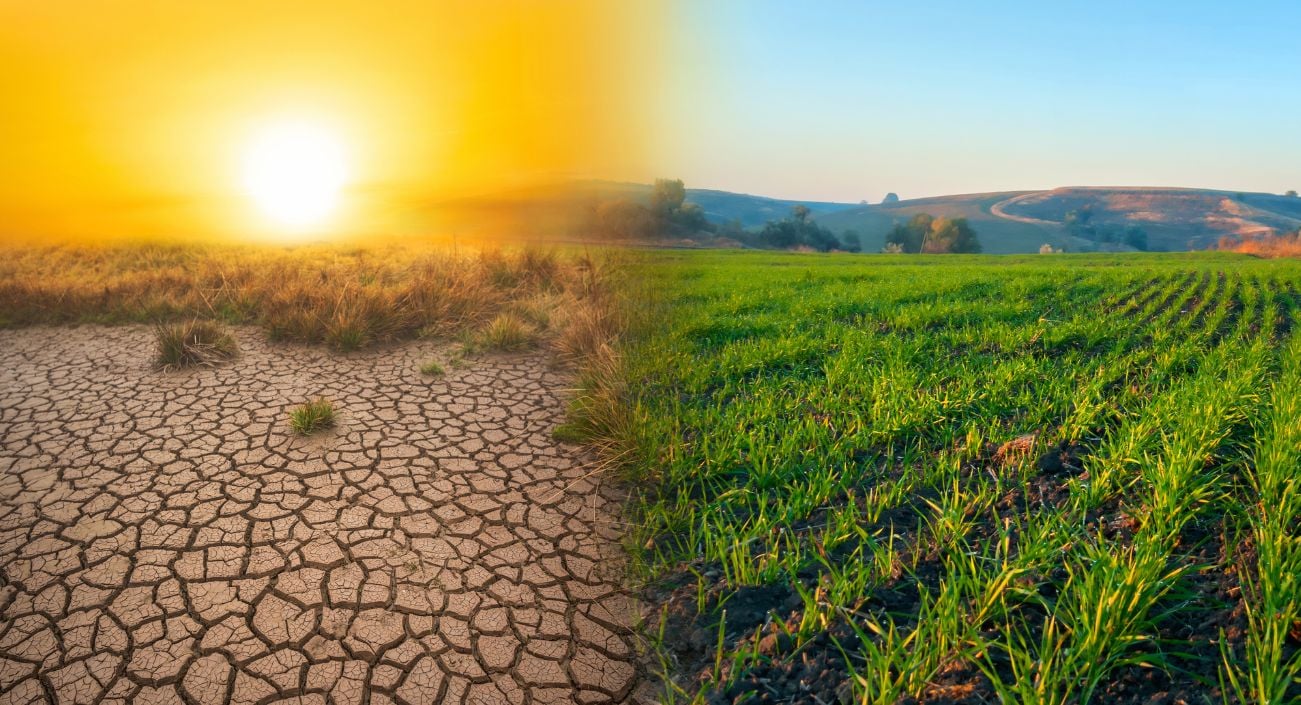There is a particular aversion to the term 'climate change' in many parts of this country and globally, primarily negative. In the simplest terms, as defined by the United Nations, climate change is any long-term shift in temperatures and weather patterns[1]. Regardless of one's personal beliefs on how large a role human activities play in climate change's impact, science does identify many negative effects.
One of the numerous negative impacts of climate change is the stresses it places on food crops, both directly and indirectly. Direct stressors can affect the quality of the crop, their vulnerability to plant disease, and pest infestation. Indirect stressors are seen when climate change affects the life cycles of pests, their distribution, and a potential increase in naturally occurring contaminants, such as heavy metals. As water tables drop, these pests and heavy metals tend to concentrate in areas where water is more accessible; thus, crop harvesting, storage, and processing conditions can become compromised.
The impact on crops will also affect agricultural chemicals such as pesticides. Warmer temperatures tend to see a spike of increased maturity in some insect species, which increases reproductive cycles. As pesticide application is often timed against the specific stages of the insect life cycle, this will lead to either an increase in pesticide application or a decrease in crop quality. Secondary effects, such as smaller plants, smaller fruits (including nuts, kernels, etc.), and decreased moisture content, will typically increase the pesticide residue on the commodity. Evidence shows an increase in pesticide levels, including maximum residue exceedances, corresponding with drought conditions.
Finally, at the most basic level, water scarcity will increase water reuse, which results in increased contaminants in water used for irrigation, post-harvest washing, and other stages in crop processing.
The direct effects of climate change can be illustrated in the tendency for mycotoxin concentrations to be higher when plants are stressed. Prolonged drought conditions weaken the plant, and if these dry spells are combined with periods of heavy but intermittent precipitation, it creates a perfect storm for the proliferation of the mycotoxin-producing fungi such as Aspergillus, Penicillium and Fusarium[2]. These fungi can infect the crop in the field during harvesting, processing, and storage. As part of the National Institutes of Health (NIH) holistic study in the last twenty years, evidence of increasing mycotoxins, such as aflatoxin, can be traced to periods of intense drought followed by high rainfall, sometimes even showing crops containing multiple mycotoxins. A global company called Biomin Inc. started a survey in 2004 as a mycotoxin monitoring solution[3], which allows regions to enter their data regarding different crop types and what the potential mycotoxin residues would be, creating a system for mycotoxin management.
It is also seen in peanuts and tree nut products. Rising temperatures are the most significant peanut stressor because they make it more difficult to irrigate, thus compromising peanut crop resilience[4]. Pests and drought are other stressors for peanut farmers[5]. To help push climate change adaptation strategies, scientists are working with farmers to create new strains that will help boost climate resilience for peanuts. Sustainable tree nut farming is another area where scientists can enact climate-resilient nut production[6].
Discover our extensive range of services to guarantee the quality and safety of your products and safeguard your brand's image amidst the trials of climate change. Take proactive steps today to protect your business and consumer confidence—learn more about our peanut and tree nut services.

